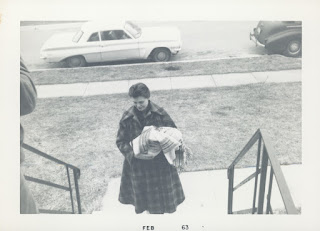• how important is the notion of 'lineage' to you personally?
• what's the 'point', or 'purpose', of a lineage?
• which form(s) of transmission do you accept as 'valid'?
I thought the discussion had promise but it seems to have ended. My response was:
Here is where I often find myself alone in my views because I think lineage is a distraction from Buddhism. There is also a bit of danger in being misunderstood (or in misunderstanding) as I interpret the questions. I'm slow to respond in this forum, usually, and I'm not really up for a debate. I'm willing to take part in a conversation.
Addressing each point,
1) Lineage is not important to me personally. It's a kindness to the egos of others. 'I got this good idea from this person or book or school of thought' is a nice thing to say in the sense of giving credit. Even that part may not seem to make much sense at times but it's seen as polite. Socially, it's generally a good thing.
Lineage is counter-important when it becomes an ad-hominem argument used to bolster a bad idea by pointing to famous people who believed in it. One of the great strengths of modern Buddhism has been a willingness to adjust to discoveries in science. Arguments by lineage, which I have heard repeatedly, generally run counter to that strength.
2) Since I don't place personal importance on it, I see lineage used mostly for the sake of argument. That doesn't seem to be its only purpose, however. For some folks, part of the point of Buddhism is worshipping a historical figure. Lineage will naturally seem important to that. I don't feel that way. The ideas and warm spirits of Buddhists are to me the worthwhile center, whole and actionable in and of themselves. Meanwhile, I don't care how the 8th lama of some temple liked tea and so we should follow his example; nor do I want to hear that plants aren't alive because it is someone's traditional view, although I have been receptive to other lines of reasoning about degrees of life.
3) Transmission from guru to guru doesn't look valid. It's declared in many traditions, of course, but for me it's the most suspect part of them. I observe the transmission of good spirit and good thought generally; it's possible to have a meaningful dharma transmission. It harder to be sure, however, that over a distance of six hundred years and several thousand miles, a particular transmission was valid.
Transmission through a community seems more reasonable, as does transmission or lineage through "admirable friends." Communities do provide an important check on understanding and also, hopefully, support for increasing understanding.
Despite my agreement with this view of transmission, both it and lineage more often seem to be practical statements used in dealing with initiates and governments (i.e, "We're not just some guys living in a commune, honest. We're a serious monastery worthy of attention.") This is not a trivial point. Societies benefit from stupas and other formal arrangements. Governments often have to consciously permit those arrangements to exist. So I don't see transmission as being about spiritual attainment so much as it is another form of argument from authority. Again, that may be a practical necessity. Arguments from authority do tend to work well, after all, with the authorities.
Beyond transmission via communities, though, I see the declaration of transmission as being a practical statement to people outside the community, even if they are being invited into it.
Note: the questions above were posted by Denis Wallez and I feel that it may be worthwhile to save some of other parts of the group discussions, here or elsewhere, with explicit permission from Denis and the other discussants.







